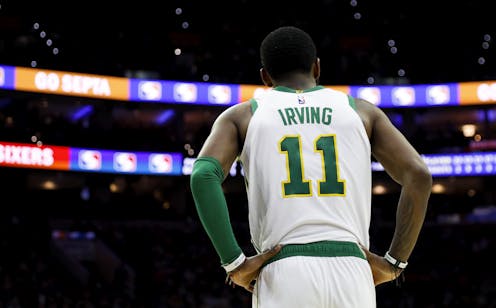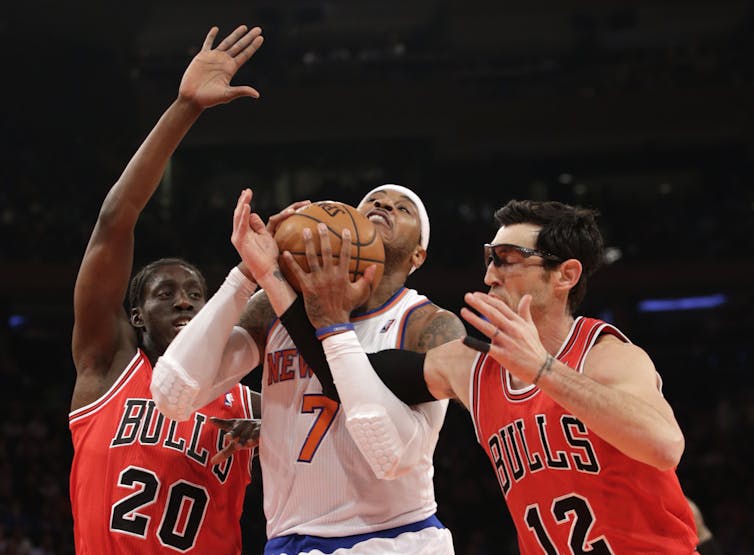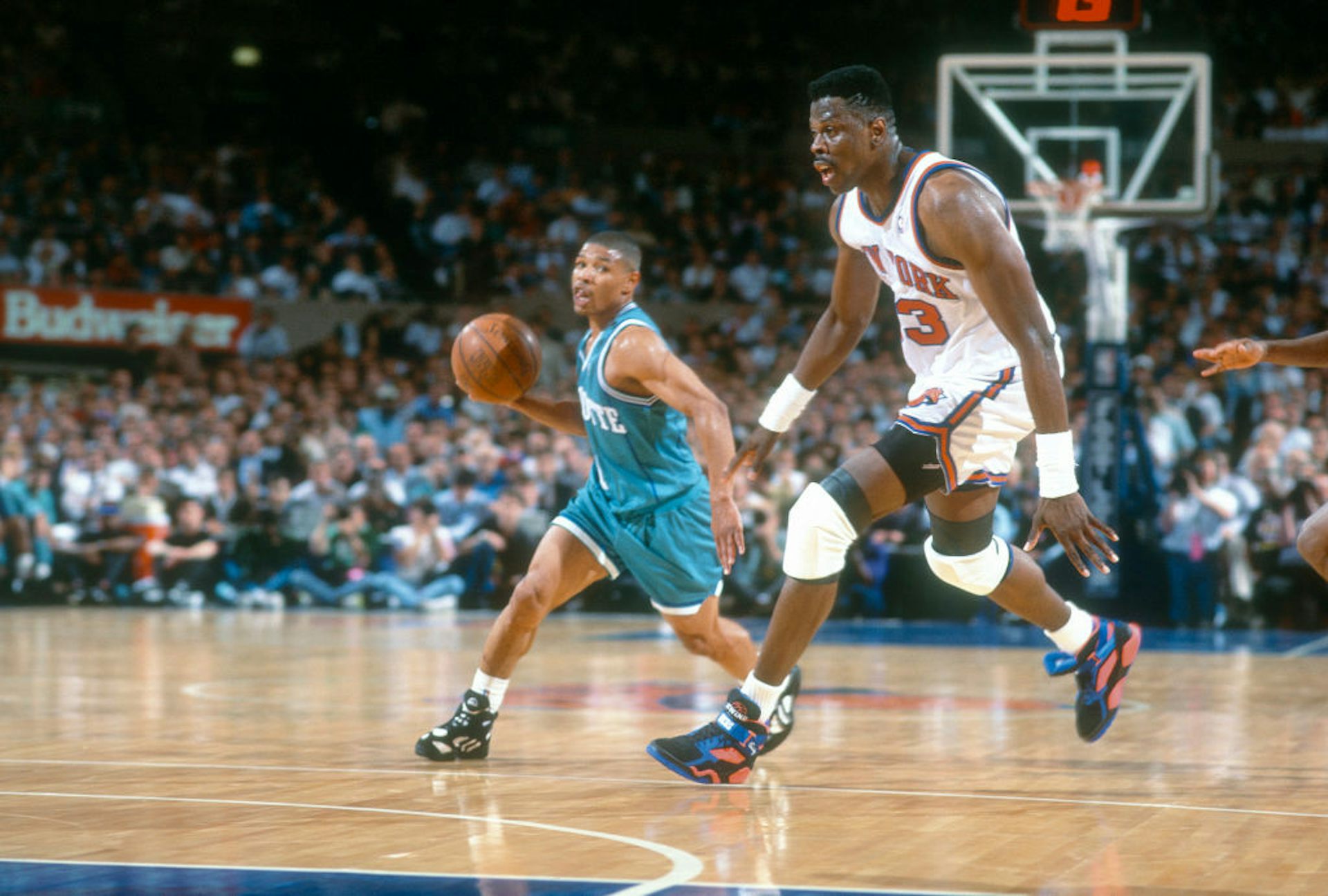The pitfalls of the narcissistic NBA player
A group of researchers figured out which NBA teams featured the most egotistical players, and then tracked their performances over the course of a season.

Why do star players sometimes hurt their team’s performance?
Last season, the Boston Celtics made the Eastern Conference Finals without two of their stars, Gordon Hayward and Kyrie Irving.
With Hayward and Irving returning this year, Boston looked like the team to beat.
However, they haven’t lived up to the hype: They’ll make the playoffs, but only as the fourth seed in the Eastern Conference. In fact, this past season, the team seemed to perform better when Irving wasn’t playing.
When explaining this phenomenon, analysts often point to a player’s inflated ego.
In Irving’s case, there have been rumblings about his narcissism – his jealousy, need to be the center of attention, tendency to blame others and poor leadership skills.
As a leadership researcher, I wondered if data might back up the assumption that bigger egos really can cause teams bigger problems.
Narcissism and performance
Narcissists tend to be entitled, arrogant, lack empathy and have an inflated sense of their own self-importance. You don’t have to be an expert to realize that this set of attributes is toxic, particularly for working with others. Yet there is little scholarly research examining how someone’s narcissism might affect a team’s ability to succeed.
The research that does exist concludes that an employee’s narcissism is unrelated to his or her job performance: Some are high performers, some are low performers, but there’s no consistent pattern. Because narcissism doesn’t appear to detract from individual performance, managers may decide that it’s okay to hire narcissists, as long as they’re talented enough.
In sports, we see this time and again. The best players get the most lucrative contracts, and there seems to be a long leash for narcissistic behavior, as long as the skills are there.
But research largely fails to take into account how narcissists might affect the performance of the team – which is what my co-authors and I set out to do.
Tweets as a window into personality
In our study, we looked at the performance of NBA teams during the 2013-2014 regular season.
In order to measure narcissism, we analyzed players’ Twitter activity. The majority of players – 396 out of 483 – had publicly available Twitter accounts. We used Twitter activity as a measure of narcissism because past research has linked narcissism to tweeting volume, with people who are more narcissistic usually tweeting more often.
But we wanted to go beyond tweeting volume to analyze the actual content of players’ tweets. So we put together a coding guide and coded 34,914 tweets written by NBA players during the 2013-2014 season for narcissism. An example of a narcissistic tweet included a player tweeting a photo of himself looking in the mirror with the caption, “What do you think when you look in the mirror? Greatness.”
There’s also evidence that people can draw relatively accurate judgments of personality traits from photos, so we coded players’ Twitter profile pictures for narcissism. Profile photos of players asserting physical dominance – flexing their muscles or being shirtless – were coded as higher in narcissism. Other photos in which players exhibited attention-seeking behavior and vanity, whether it was posing with a group of beautiful women or striking a pose in front of trophies, were also coded as higher in narcissism.
Selflessness creates room for improvement
We found that teams with more narcissistic players tended to have fewer assists and, in turn, didn’t perform as well. Since assists are passes that lead directly to baskets, they require coordination and communication. Assists capture players’ willingness to prioritize the team and sacrifice the personal glory of scoring points by sharing the ball and allowing others to score.
Because narcissists tend to make positive first impressions that deteriorate as people get to know them, we originally hypothesized that teams with more narcissistic players would experience greater problems over time.
Instead, we found teams with more narcissists performed consistently over time, while those with fewer narcissists improved as the season progressed. We reasoned that teams with fewer egos were able to build stronger relationships and improve their chemistry in a way that teams that scored higher in narcissism couldn’t.
The least and most narcissistic teams in our 2013-2014 sample best illustrate this dynamic.

The Charlotte Bobcats had the lowest team mean narcissism score. Before the season, they were forecast to win approximately 26 out of 82 games – which would have been one of the worst records in the league. Instead, the Bobcats ended up with 43 wins and made the playoffs.
By contrast, the New York Knicks had the highest mean narcissism score and performed well below preseason expectations. According to predictive models, the Knicks were supposed to have 49 wins. However, they finished the season with only 37 and missed the playoffs.
Clearly, when building a team – whether it’s in sports or in business – focusing exclusively on talent only goes so far. Intangible attributes, such as a willingness to put aside self-interest and collaborate with others, can be just as important.
Ignoring this can prevent a team from reaching its full potential.
Emily Grijalva does not work for, consult, own shares in or receive funding from any company or organization that would benefit from this article, and has disclosed no relevant affiliations beyond their academic appointment.
Read These Next
Florida’s immigrant entrepreneurs are creating jobs and prosperity in their communities
Stories of Florida’s immigrant entrepreneurs show how immigrants find opportunities and fill economic…
How do people know their interests? The shortest player in the NBA shows how self-belief matters mor
Some people seem to be born to excel at certain activities. But having opportunities to try new things…
Whether it’s yoga, rock climbing or Dungeons & Dragons, taking leisure to a high level can be good f
When a hobby becomes something larger, with a focus on improving skills and developing deep knowledge,…






